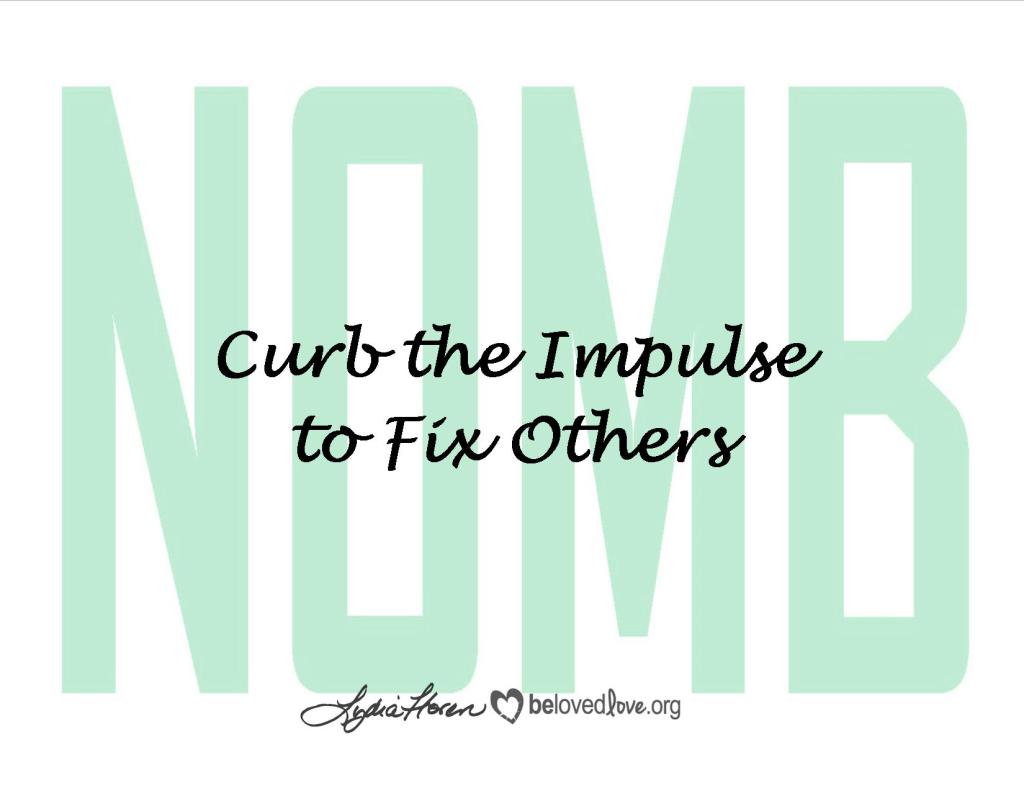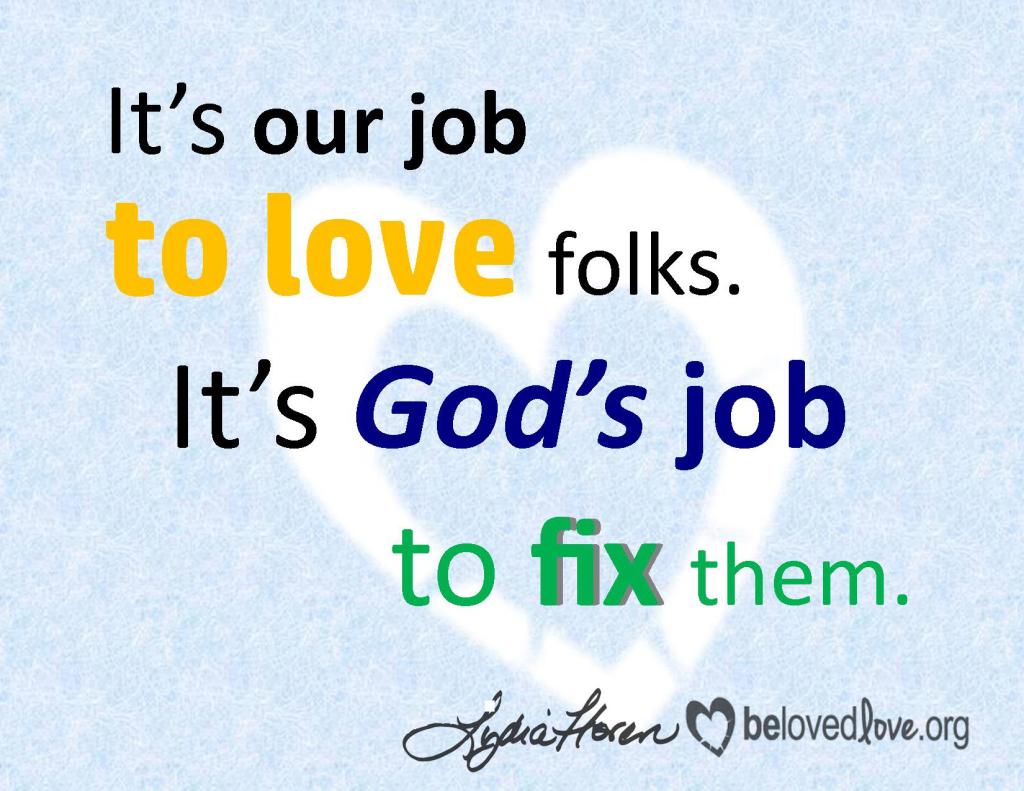NOMB (None Of My Business) Part II: Curbing The Impulse To Fix Others
When I see someone else’s struggle and “feel their pain”, I want so much to make it better. WHAT’s a person to DO? Here are a few tips:
#1 Face yourself:
- Check your motives. Be honest with yourself about why you want to make it right. Your urge to fix is probably not as altruistic as it seems. Our motives are often mixed: sure we want to help, but we may also want to avoid the discomfort of watching others suffer or the annoyance of their “imperfection.”
- Accept your limits in understanding and skill, and the specific ways God has asked you to serve in this world.
#2 Remind yourself of truth:
- Pain is important. We are programmed to avoid pain at any cost, but experiencing pain is necessary; the stove’s heat or the wind’s cold prompt us to practical action. Leprosy is a malady where the nerves that detect pain are destroyed. Much of the disfigurement of leprosy comes because of the lack of feeling, not from the disease itself: a burn goes undetected, or an infection untreated, which leads to irrevocable tissue damage. Pain notifies us of danger or a need to change, even if that is just taking better care of ourselves.
- Suffering is a part of life on earth. “In the world,” Jesus said, “you will have tribulation. But take courage: I have overcome the world.” He understands that we will have suffering—He experienced it himself many times. But he also knows that accepting hardship is not admitting defeat: far from it. God works all things out for the good of those who love Him and are called according to His purposes.
- God uses all the pain in our lives, and sometimes He allows us to suffer for a reason. If He does so, He can be trusted: He has a good purpose in it, either for us or for someone else.
- Your fixing can actually do more harm than good. What you think is helpful for someone else can often be downright harmful; how could you possibly know?
#3 Pray:
- Thank God that
He is at work in this situation, and good will come of it.
His love for you and your loved ones is much greater than your own.
His ideas, His strategy, His perspective, His understanding are far beyond you’re own.
He will let you know if He wants you to do something in this situation.
He will give you the self-control to resist the urge to step in where you don’t belong, and the courage to step forward when He leads you to act. - Talk to God about the specifics. He already knows what is going on, but also knows that you need the listening ear of a loved one to hear your concerns. (It really helps. Trust me.)
- Ask God what He wants you to do or not do.
- Listen for His answers.
#4 Act: There are many ways God MAY ask you to help. You might be led to do one or a combination of the following:
- Intercede. Often when I see difficulties in another’s life, I feel like God’s primary request is for me is to pray for that person. This is not a last resort. It is actually the most powerful action I can take because prayers invite the power of God’s spirit into the situation. Perfect power and perfect love, working on the problem! Who doesn’t want that?
- Encourage. The most important thing a person can do–outside of praying–for someone in difficulty is to encourage them. Encouragement can be as simple as a smile, a hug, a note, or a shared laugh. It is easy to encourage via phone, text, Facebook, or email. A moment of thoughtfulness can make a world of difference in someone’s day, especially when they are going through a hard time.
- Listen. God gave us two ears and one mouth, right? Listening is a powerful encouragement. Giving someone a safe place to articulate a problem or vent emotion is actually therapeutic. I have seen this over and over in the practice of medicine.
- Serve. Practical acts of service, such as a gift, a visit, a meal, an offer to babysit are “cups of cold water” given in Jesus’ name. They help lighten another’s load in the most literal sense.
“It’s God’s problem. He should worry”
To be honest, it is a relief to acknowledge my limits, and accept my inability to fix others. When I do, I find I worry less. I pray more. My focus centers on God’s sufficiency rather than specific problems. And I am more likely to pay attention when God leads me to how and when I should act, or if it is best for me just to concentrate on prayer.
At most I might be a small part of a solution to someone’s problem. I am certainly not meant to be The Solution. Only God can be that; when I try, I just get in the way.
Accepting my limits frees me to do what God has already asked me to do—what we are all called to do in this world: love people. This love may take the form of prayer, encouragement, listening, and/or serving.
It’s our job to love folks. It’s God’s job to fix them.
Recent Series: NOMB Part I: Letting God Be The Fixer; Patience


Lydia, thanks so much for today’s message! The Lord led me ro read this message. It is NOT my job to ‘fix’ someone…but I can still love and encourage them though His power.
Needed this today. Thanks!!!! 🙂